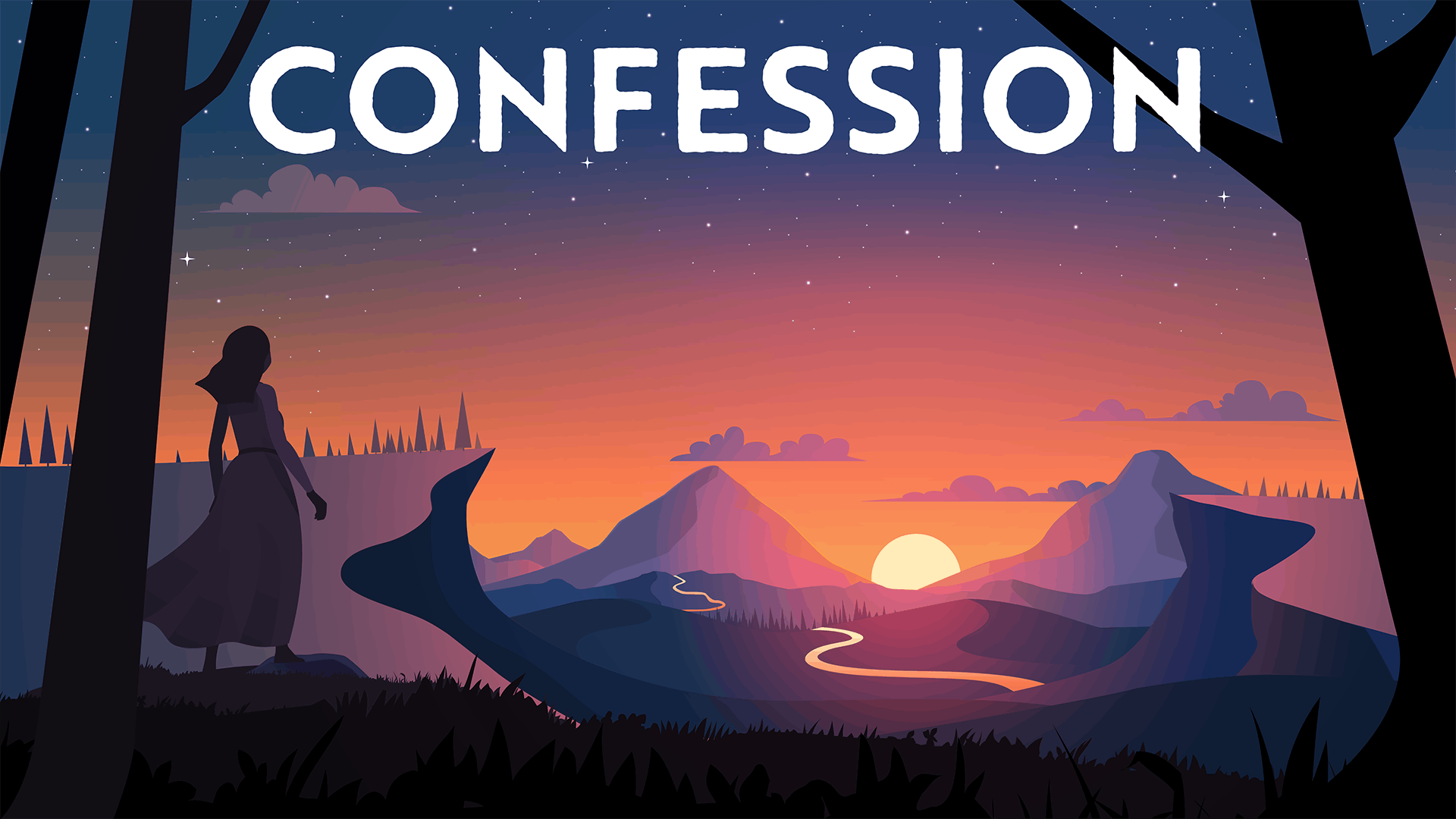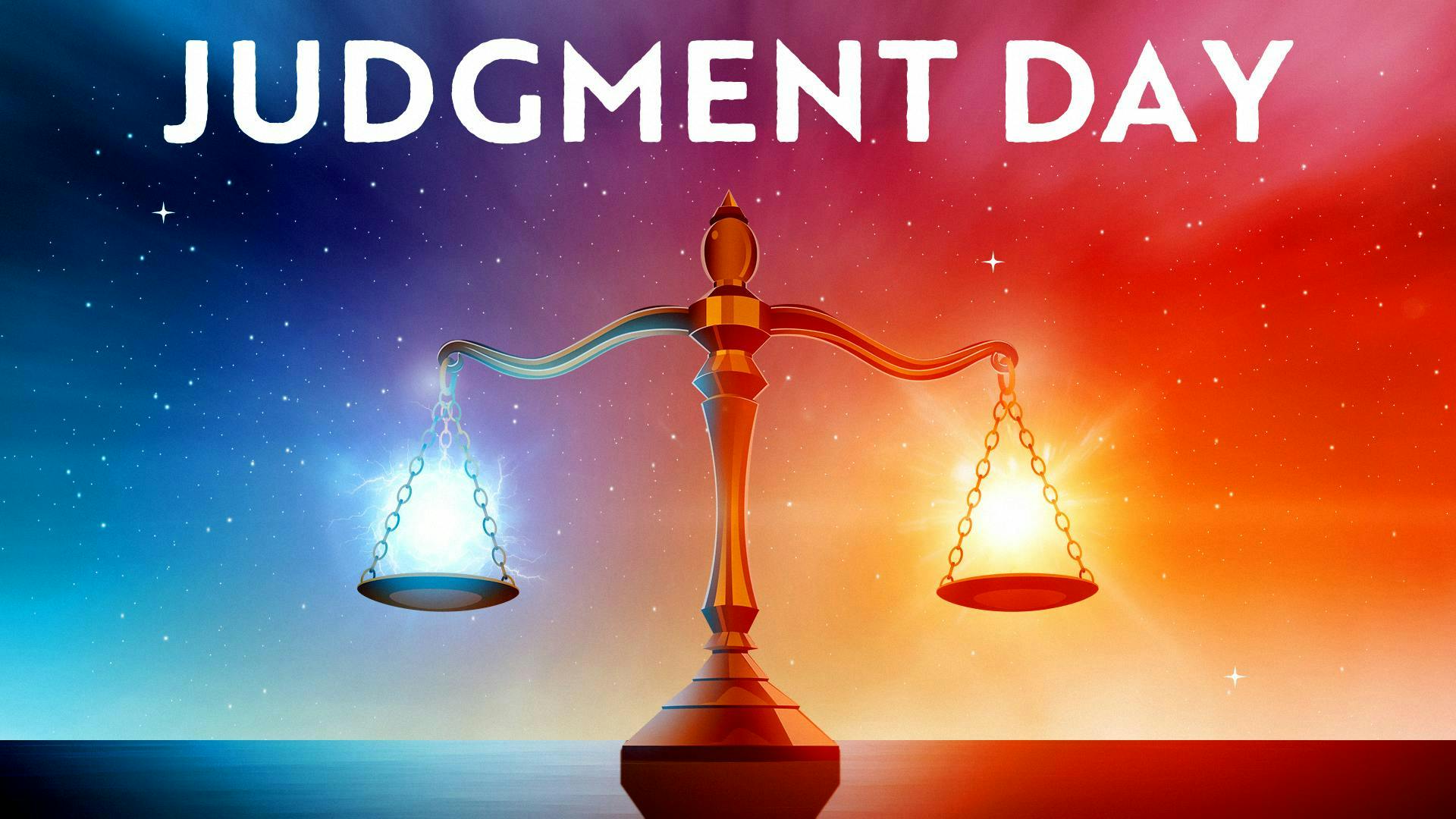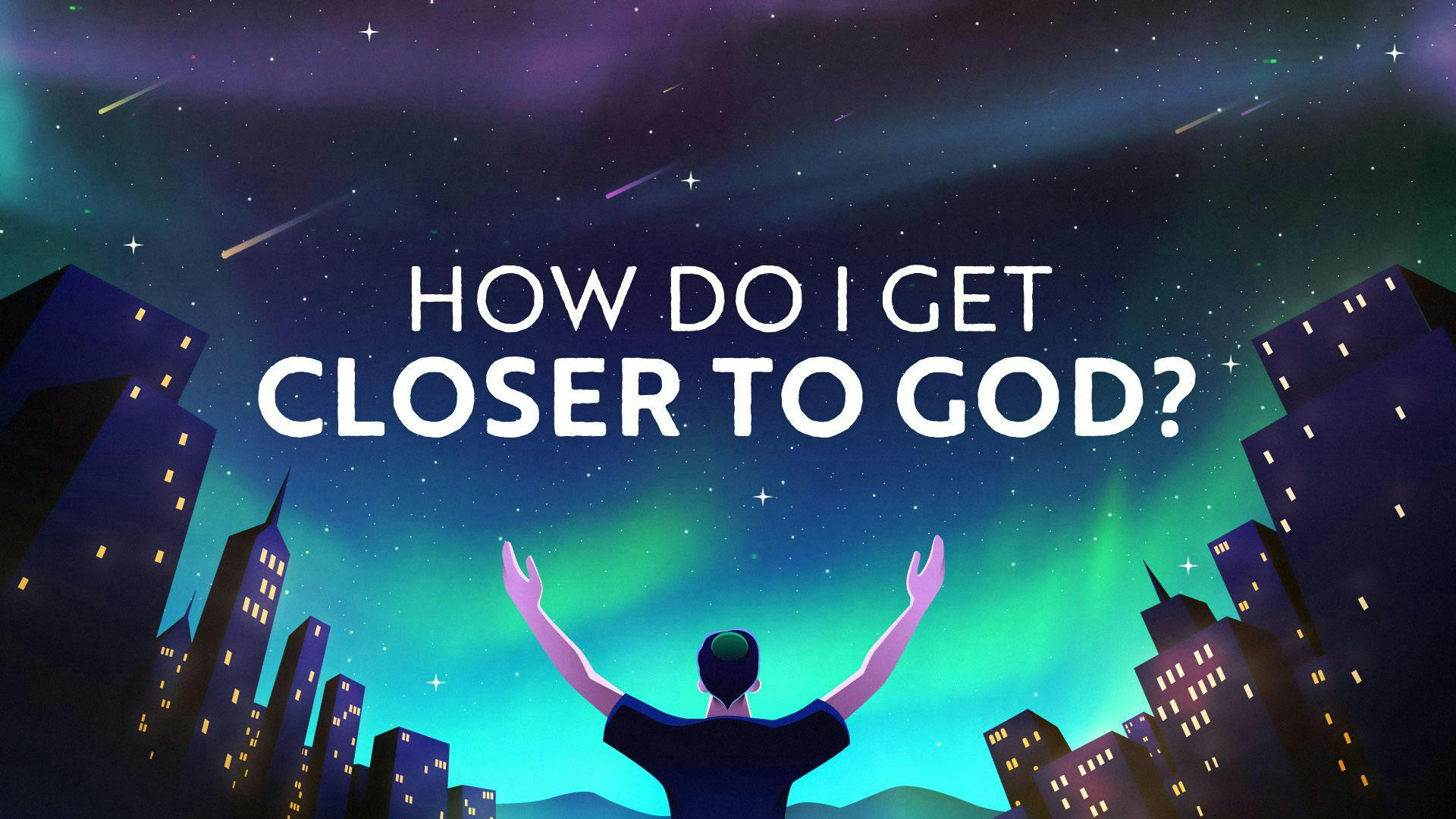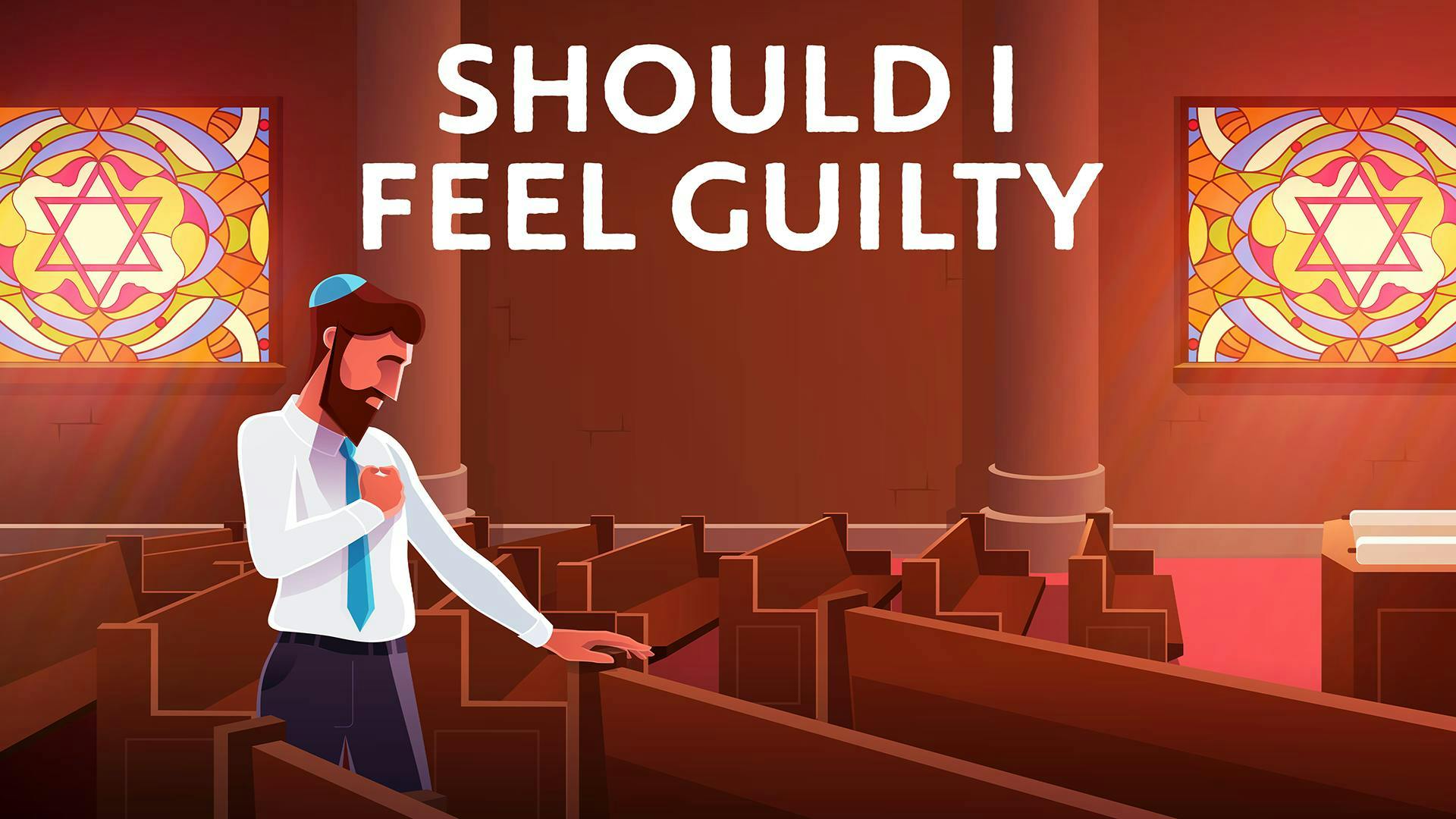The Meaning of the 10 Plagues
Exploring a Deeper Symbolism of the Ten Plagues
By Ari Levisohn | 6 March 2024 | 5 Minute Read
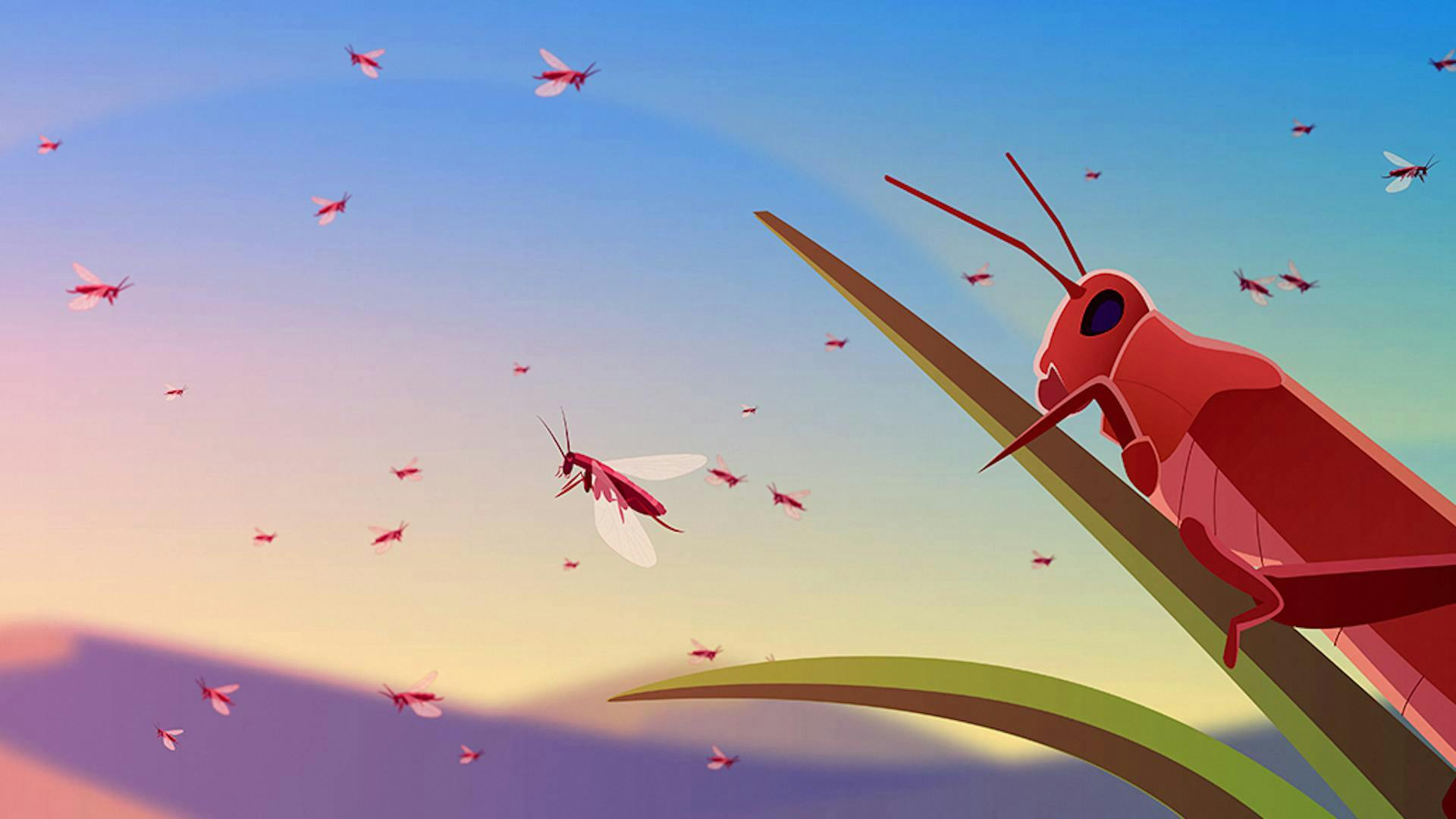
What Were The Ten Plagues in Egypt?
Before we unpack the deeper meaning of the Ten Plagues, let’s quickly recap what they were. When Pharaoh refused to free the Israelites, God promised to unleash plagues upon the Egyptians, and unleash, He did. By the time all was said and done, God smote Egypt with a total of 10 plagues.
The 10 Plagues, Explained
- Blood (דםָ) God turned the Nile River, sacred to the Egyptians, into blood, along with all the water in Egypt.
- Frogs (צפְרֵדְעֵ) Out of the same waters God just turned into blood, came and endless number of frogs which swarmed to every corner of Egypt, even the bedrooms.
- Lice (כִּנִים) Lice crawled from the earth and unleashed misery on man and animal, alike.
- Animals (עָרוֹב) Wild animals swarmed the land of Egypt destroying everything in their path.
- Pestilence (דבֶרֶ) A deadly disease struck all the livestock of Egypt.
- Boils (שְׁחִין) Boils so terrible that Pharaoh’s priests couldn’t even stand before Moses.
- Hail (בָּרָד) Hail and “fire” poured down from the heavens, destroying anything left out in the fields. According to Rabbinic Tradition, the fire was miraculously contained inside icy balls of hail.
- Locust (אַרְבֶּה) A swarm of locusts, so thick it blacked out the the sky, blew in from the east, and consumed what little vegetation was left in Egypt.
- Darkness (חשֶׁךְ) Three days of absolute, paralyzing darkness for the Egyptians.
- Firstborns (מַכַּת בְּכוֹרוֹת) Every first born son of Egypt would die, from the firstborn of the prisoner to the firstborn of Pharaoh.
A Deeper Meaning of the Plagues
So those are the facts of what these plagues were. But what was the deeper meaning behind them? There are two major questions we have to ask when thinking about the deeper significance of these plagues. The first is:
Why Did God Need TEN Plagues?
Think about it. If the Master of the Universe simply wanted to free the Israelites from their slavery in Egypt, couldn’t He have done that in a much simpler way? What was the purpose of the plagues? Why bother with plagues at all? If the Almighty is capable of doing anything He wants, why not free the Israelites in the simplest, cleanest way possible and sneak them out covertly in the middle of the night, without using a single plague?
He wanted to punish the Egyptians, you are probably thinking. I think we can all agree that the Egyptians deserved a retribution for what they did. If the plagues were really all about punishment, though, surely God could have saved Himself some time and punished with one really terrible plague. What do I mean? Just imagine sitting in a courtroom while the judge is sentencing a criminal to his punishment. “I hereby sentence you to 15 years in prison,” the judge begins. But then he keeps going. “... And 200 hours of community service. Plus, when you get out of prison you will be on house arrest for 10 more years.” It’s starting to feel a little superfluous, isn’t it? But the judge isn’t done. “... On top of that, I am fining you $8000, making you walk around in a shirt that says “I was bad,” flogging you 40 times…” The judge keeps adding punishment after punishment, and you start to wonder what is this guy doing? Can he not think of one punishment that is good enough? Is he just having trouble making up his mind? If God was simply punishing the Egyptians, why not just give them one, really terrible plague?
All this makes you wonder what the purpose of these plagues really was? If this is bothering you as much as it is me, I highly suggest you take a look at Rabbi Fohrman’s video Why God Sent All Ten Plagues where he explains what God was really doing in sending all these plagues against the Egyptians.
Beyond that overarching question of why God sent so many plagues, we can also zoom in to each plague and ask:
What Was the Symbolism of Each Plague?
Why did God send each particular plague and not something else? Why blood, frogs and lice? Why not a nile full of spoiled milk, raining knives and indigestion?
Here are a few resources explaining the deeper meaning of some of the plagues:
Blood
This incredible series of videos actually begins with a precursor to the plague of blood. You see, all the way back before the plagues had even started God gave Moses a few small-scale miracles to perform before the Israelite elder and convince them God had sent him. The first of these mini-miracles was to take a little water from the nile and poor it out onto the ground where it would turn into blood. The later plague of blood was really just a large-scale version of this. In this series Rabbi David Fohrman explains the message intended in both of these water-into-blood miracles, not for Egypt, but for the Israelites themselves. Take a look here: Moses’s Miracles
Frogs
Frogs seem to be the kids’ favorite plague: plastic frogs at the seder table… songs about all the funny places Pharaoh found the frogs… It’s all good fun. But I find it hard to imagine that the Almighty just picked this plague for a good giggle. We have to assume there was a deeper meaning to this plague, right?
In this podcast, Rabbi Fohrman and Imu Shalev notice something peculiar about the way this plague is described that turned out to be the key to understanding this plague on a much deeper level. Listen now: The Meaning of The First Two Plagues
Locust
The word arbeh (אַרְבֶּה) means locust. But that exact same word actually has a completely different meaning, many chapters ago, when God uses it in a promise He makes to Abraham. Is it a coincidence, or could that promise have something to do with this plagues that God sent the Egyptians 400 years later? Better yet, could it explain what this plague was all about?
Listen to this podcast all about that: The Meaning of the Eighth Plague of Locusts
Firstborn
The truth is, this God actually says exactly why he was going to kill the Egyptian firstborn. It was a measure-for-measure punishment. Egypt refused to let God’s first born (Israel) go, so He would strike their first born.
וְאָמַרְתָּ אֶל־פַּרְעֹה כֹּה אָמַר יְהוָה בְּנִי בְכֹרִי יִשְׂרָאֵל׃ וָאֹמַר אֵלֶיךָ שַׁלַּח אֶת־בְּנִי וְיַעַבְדֵנִי וַתְּמָאֵן לְשַׁלְּחוֹ הִנֵּה אָנֹכִי הֹרֵג אֶת־בִּנְךָ בְּכֹרֶךָ׃
Then you shall say to Pharaoh, ‘Thus says יהוה: Israel is My first-born son. I have said to you, “Let My son go, that he may worship Me,” yet you refuse to let him go. Now I will slay your first-born son.’”
(Exodus 4:22-23)
But there are lots of other questions to ask about this plague. For instance, look at the language God uses to introduce the plague:
וַיֹּאמֶר יְהוָה אֶל־מֹשֶׁה עוֹד נֶגַע אֶחָד אָבִיא עַל־פַּרְעֹה וְעַל־מִצְרַיִם…
And יהוה said to Moses, “I will bring but one more plague upon Pharaoh and upon Egypt…
(Exodus (11:1)
Now, you're probably expecting to hear what that plague is. But that’s not what God says. Instead He seems to get all distracted by telling the Israelites how to get rich on the way out Egypt:
דַּבֶּר־נָא בְּאָזְנֵי הָעָם וְיִשְׁאֲלוּ אִישׁ מֵאֵת רֵעֵהוּ וְאִשָּׁה מֵאֵת רְעוּתָהּ כְּלֵי־כֶסֶף וּכְלֵי זָהָב׃
Tell the people to borrow, each man from his neighbor and each woman from hers, objects of silver and gold.”
(Exodus 11:2)
In the following video, Rabbi Fohrman answers this question, along with several other questions about this plague, and ultimately reveals a much deeper meaning behind the final plague of the exodus. Watch now: The Tenth Plague of Egypt
Looking for more?
We have hours of delightful videos and podcasts to enhance your Yamim Noraim experience.
Passover Videos
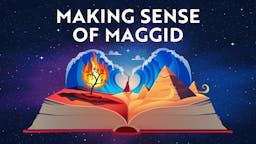
Your Roadmap Through the Haggadah: Making Sense of Maggid
Video series • Part 1 of 5 • 14 min
Our main job at the Seder is to tell the story of the Exodus—but the Haggadah, the very guide meant to help us, can often feel surprisingly confusing. Discover why we read this text and transform maggid from that part you rush through to get to the food into the most insightful highlight of the evening.
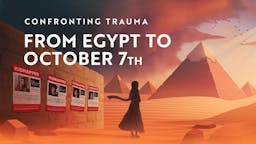
Confronting Trauma: from Egypt to October 7th
Video series • Part 1 of 7 • 14 min
In this timely course, Rabbi Fohrman considers how God's response to ancient trauma speaks directly to our present moment after October 7th.
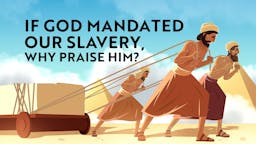
If God Mandated Our Slavery, Why Praise Him for Our Freedom?
Video series • Part 1 of 5 • 8 min
The seder is full of songs praising God for taking us out of Egypt – but He decreed to Abraham that we’d be slaves in Egypt centuries beforehand in the Brit Ben Habetarim. So did He save us or put us into slavery in the first place?
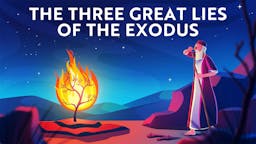
The Miracles Performed By Moses In Egypt
Video series • Part 1 of 7 • 10 min
At the burning bush, God gave Moses three signs to show the People of Israel that He is in fact with them. Was there any significance to these 3 signs, or did God randomly select three signs? Also, were the signs even effective? Join Rabbi Fohrman as he takes a closer look at these three signs from God.
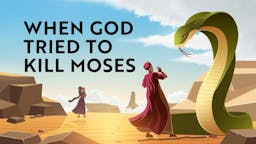
That Bizarre Moment When God Tried to Kill Moses
Video series • Part 1 of 6 • 14 min
Remember when God inexplicably tried to kill Moses and Tzipporah had to save him? This isn't a midrash —it's right there in the text. Why would God threaten the very messenger He just selected? Discover the hidden connection between this bizarre episode and the deeper meaning of the entire Exodus story.
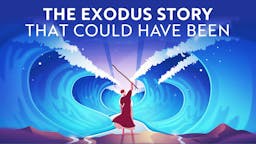
The Exodus Story That Could Have Been
Video series • Part 1 of 5 • 13 min
The Exodus story ends in carnage for the Egyptians, and in glorious salvation for the Israelites – but could this story have ended differently? Could the Egyptians also have lived happily ever after? Rabbi Fohrman thinks we can find the answer by noticing some uncanny resemblances to another biblical story. Join us as we explore a new way of reading the Exodus story.
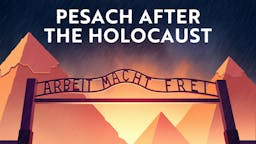
When Evil Seems Unanswerable: Pesach’s Wisdom After the Holocaust
Video series • Part 1 of 5 • 20 min
Rabbi Fohrman reveals how the often-overlooked 'shotrim' of Egypt provide a framework for understanding divine justice after the Holocaust. A powerful Passover exploration of how God responds when no punishment seems adequate.
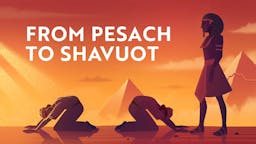
From Pesach to Shavuot: Did God Free Us Just to Make Us Serve Him?
Video • 31 min
Why did God begin the Ten Commandments by declaring, “I freed you from Egypt.” Is He buying our obedience? Or is there a deeper message to this first command… and what can it tell us about the exodus story?
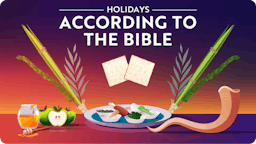
The Deep Connection Between the Biblical Holidays
Video • 12 min
There are several holidays mentioned in the Bible, including the Three Pilgrimage Festivals: Passover, Sukkot and Shavuot. What makes these days more significant than any other holiday? The Bible seems almost elusive when describing these holy days. Join Rabbi Fohrman as he uncovers the secret theme that permeates these days, allowing a deeper understanding of the holiday cycle to emerge.
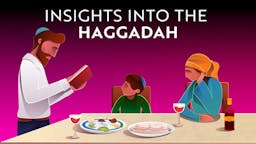
Model Passover Seder
Video • 2 hour
Insights into the Passover Haggadah
Sit alongside Rabbi Fohrman and our CEO Imu Shalev for a model seder as they explore wonderfully new and invigorating ideas on an age-old seder tradition.
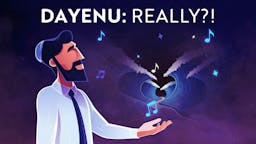
Dayenu In The Pesach Haggadah
Video • 1 hour, 21 min
Singing Dayeinu: Would It Really Have Been Enough? What do the lyrics of Dayeinu song really mean?
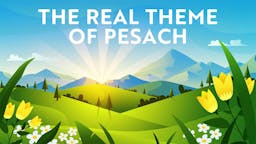
What Is The Main Theme Of Pesach?
Video • 7 min
If Pesach was really about freedom, then why didn’t God take the Israelites out of Egypt sooner? Why did he have to go through all of the trouble of making plagues? Join Imu as he explores this pivotal question by re-examining the Exodus text, and never read the Pesach story the same way again.
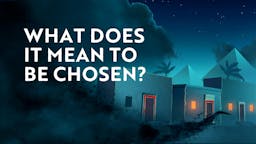
What Does It Mean To Be Chosen?
Video series • Part 1 of 8 • 8 min
If God wanted to free us from slavery, why not just take us out? Why the plagues, the blood on the doorposts, the hardening of Pharaoh’s heart—why all the extra steps? Rabbi Fohrman uncovers how these puzzling details reveal something much deeper: what it truly means to be God’s ‘firstborn.’
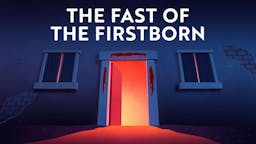
What Is Taanit Bechorot?
Video • 7 min
Taanit Bechorot commemorates the tenth and final plague in the Passover story -- when God killed all of the firstborn Egyptians, but spared those of the Israelites. To remember, firstborns fast. But what’s interesting about Taanit Bechorot is that most firstborns don’t actually fast. Instead, there’s another tradition of joining a se’udat mitzvah -- a special kind of religious meal, whose joy overrides the fast. So, if no one's fasting, why are we even celebrating this day? Join us as we explore this unique question by reexamining the language used to describe God’s firstborn child, the Israelites -- and never think of Taanit Bechorot the same way again.
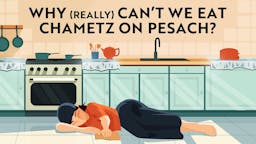
Why (Really) Can’t We Eat Chametz on Pesach?
Video • 28 min
We all know that we eat matzah because we left Egypt quickly. But that doesn't explain why we must eliminate all chametz. Investigate the surprising connection between Egyptian bread technology and Passover's restrictions.

How Is Land Ownership Connected To The Pesach Sheni Offering?
Video • 32 min
In Parshat Pinchas, we read about the daughters of Tzelaphchad, who sought to inherit their father’s land. God granted their request, and even codified it into law. But there’s something unique about this story — it’s strikingly similar to the story of the Pesach Sheini offering. When a group of ritually impure people approached Moses and requested a way to make an offering, God codified a practice called Pesach Sheni, which acted as a “make-up” offering for the impure. But what does inheriting land and ritually impurity have to do with each other? Join Rabbi Fohrman and Daniel Loewenstein as they explore the meaning of nationhood and purity.
What is Aleph Beta?
Aleph Beta is a unique kind of Torah library. Led by our founder, Rabbi David Fohrman, we are dedicated to high-level, textual Torah learning for adults that is intellectually and spiritually sophisticated, that enlivens your Jewish practice and helps you forge a deeper connection to God. Whether you’ve been learning in yeshiva for years or you’re just beginning your Torah journey, you’re sure to find something meaningful and surprising waiting for you here.
Browse our library of over 1,000 beautifully produced animated videos, podcasts, deep dive courses, and printable guides. Topics include the weekly parsha, Jewish holidays & fast days, laws & mitzvot, prayers, relationships, big philosophical ideas and more. Have something to say at the Shabbos table that will amaze your family and guests and bring deep meaning into their lives.


